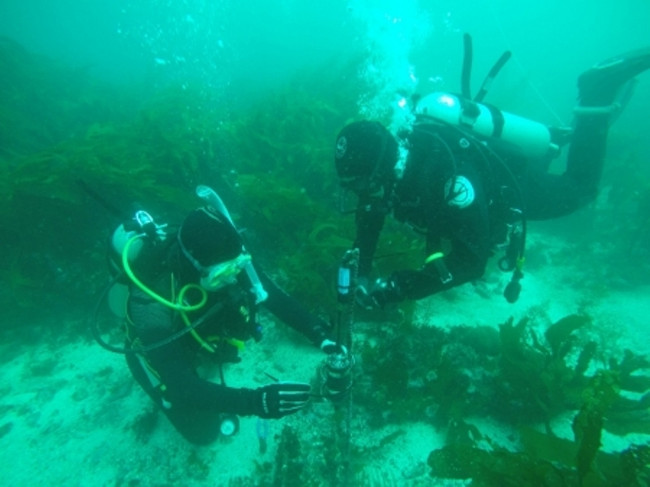The noise of ships affects the communication ability of marine creatures
Scientists at the University of Auckland conducted the first large-scale survey of the effects of ship noise in Hauraki Bay waters.
The study shows a significant narrowing of the communication space of at least two important marine species.

Dr. Rosalyn Putland and Associate Professor Craig Radford of the Marine Science Institute have combined recordings from four hydrogen wave receiving stations over a period of 9 months with automatic ship tracking data to monitor underwater noise. created by ships.
Stations are suspended from 1m to 2m above the sea floor, the recorder records two minutes of data every 20 minutes.
The study focused on two species that use sound for communication, Bryde whale (Balaenoptera edeni) and big-eyed coral reef fish (Pempheris adspersa).
The group found noise from cargo ships waiting for cargo, container ships and tankers overwhelmed the communication area of marine life up to 20%.
Each time the ship passes the 10km collection station, it will reduce the communication space of large marine creatures to 61.5% and 87.4% reduction for Bryde whales.
Studies show that giant fish can communicate with distances of up to 31 meters, but a passing ship will reduce communication space to 12 meters.
The reduction of communication space of marine species is increasingly concerned by scientists around the world because of the use of sound among species groups to ensure survival including the search for a partner, say defend the territory and warn predators.
While this study focuses on large commercial vessels, more than 130,000 recreational boats regularly use the Bay and this number is expected to increase by 40% in the next 20 years.
Recreational boats also make sounds superimposed on the sounds of fish and marine mammals. Studies at the Leigh Sea Laboratory will focus on considering how the noise of the Gulf recreational boat affects the communication space of fish and marine mammals.
The study was published in the journal Global Change Biology.
See more:
- Spectacular escape screen of giant octopus through small holes
- The "dead zone" on the ocean threatens the life and ecosystem of many seas
- Scientists discover what's left of the oldest Antarctic creature